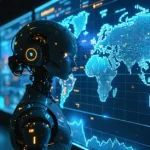In an era dominated by rapid technological progress, the very definition of work is undergoing a profound transformation. Artificial intelligence (AI) is no longer a distant concept limited to science fiction; it has permeated industries, reshaping jobs, workflows, and even our perception of productivity. Amid these changes, one timeless resource—time itself—demands renewed attention. Understanding and valuing time has never been more crucial, especially as AI accelerates the pace of life and work.
The Changing Landscape of Work
Historically, human labor has been defined by hours and effort. From agricultural workdays dictated by sunlight to industrial shifts timed by factory bells, productivity was measured largely by physical presence and endurance. The industrial revolution introduced machines that amplified human effort, and the digital revolution allowed information to flow faster than ever. Now, AI is taking this evolution to an entirely new level.
AI systems can analyze massive datasets, generate creative content, automate repetitive tasks, and even make complex decisions—all at speeds impossible for humans. For knowledge workers, this means tasks that once consumed hours can now be completed in minutes. While this presents extraordinary opportunities, it also raises critical questions: What should humans focus on when machines handle routine labor? How do we define meaningful work in an age where effort alone is no longer the measure of value?
Time as the Ultimate Currency
In the AI era, time has become a scarce and precious commodity. The efficiency gains promised by automation are only valuable if humans know how to spend the time saved. The ability to delegate mundane tasks to AI does not automatically translate into better lives or careers; it is what we choose to do with that freed time that determines its worth.
Consider a professional whose inbox is flooded with hundreds of emails daily. AI can categorize, prioritize, and even draft responses. The immediate result is obvious: more time. But the real opportunity lies in how that time is reinvested—whether in deep, creative work, personal development, or building relationships that machines cannot replicate. In this sense, AI does not replace human value—it amplifies it, provided we consciously align our choices with our highest priorities.
The Human Edge
Despite the extraordinary capabilities of AI, there remain inherently human qualities that machines cannot replicate: empathy, intuition, ethical judgment, and creativity rooted in lived experience. These uniquely human skills are increasingly the differentiators in professional success. As AI takes over repetitive and computational tasks, humans are free to focus on areas where nuanced understanding and emotional intelligence matter most.
This shift demands a reorientation of work ethics and strategies. For instance, problem-solving now requires not only technical knowledge but also the ability to discern which problems are worth solving. Leadership is less about micromanaging processes and more about guiding vision, inspiring collaboration, and fostering innovation. Time becomes the lens through which we evaluate opportunities: which activities deserve human attention, and which can be entrusted to AI?
Redefining Productivity
Traditional measures of productivity—hours worked, tasks completed, or outputs produced—are losing relevance in a world where AI can accomplish many of these faster and more efficiently. Instead, productivity is evolving to emphasize outcomes, impact, and alignment with long-term goals.
A creative professional might spend less time drafting reports or generating presentations and more time exploring innovative ideas, experimenting with new approaches, and refining strategies that AI cannot conceive. Here, productivity is less about activity and more about value creation—about leveraging time to generate insights, strengthen relationships, and make decisions that matter.
Mindful Time Management
As AI accelerates workflow, the need for intentionality in how we use our time becomes paramount. Mindful time management is not simply about scheduling or optimizing efficiency—it is about consciously choosing how to spend the hours available.
Techniques such as the Pareto Principle, where 20% of activities generate 80% of results, become even more relevant. AI can handle the routine 80% of work that produces marginal gains, allowing humans to focus on the critical 20% that drives innovation and influence. Similarly, practices like deep work, which emphasize undistracted, meaningful engagement, help individuals maximize the value of the time AI cannot replicate or accelerate.
The Balance Between Speed and Depth
One of the subtle challenges in the AI era is the temptation to equate speed with value. Just because a task can be completed faster does not mean it should be. The human mind thrives on reflection, creativity, and deliberation—qualities that cannot be rushed without diminishing their impact.
AI can accelerate processes, but depth of thought remains a human domain. Decision-making, strategic planning, and creative ideation require time to incubate ideas and explore possibilities fully. Paradoxically, the faster machines become, the more important it is for humans to slow down in the areas where depth matters most. Valuing time in this context is not about doing more but about doing what truly matters.
Ethical Considerations
The rise of AI also brings ethical questions that intersect with time management. As machines take on decision-making roles, humans must allocate time to oversight, critical evaluation, and ethical reflection. What data should be used? Which outcomes are fair and just? How do we prevent unintended consequences from automated systems?
Neglecting these responsibilities in the pursuit of efficiency can have long-term costs that far outweigh immediate gains. In this sense, valuing time includes dedicating it to considerations of accountability, fairness, and societal impact—areas where human judgment is indispensable.
Lifelong Learning in an AI World
Another dimension of valuing time is investing it in continuous learning. AI evolves rapidly, and skills that were valuable yesterday may become obsolete tomorrow. The individuals and organizations that thrive are those who view time not only as a resource for work but also as an opportunity for growth.
Learning new tools, acquiring interdisciplinary knowledge, and cultivating adaptability are investments that compound over time. AI can accelerate learning by providing instant access to information and personalized guidance, but it cannot replace the critical thinking and contextual understanding that humans must develop. Valuing time, therefore, involves allocating hours to growth, reflection, and the development of competencies that will remain relevant in an unpredictable future.
The Human-AI Partnership
The true potential of AI is realized not when it replaces humans, but when it partners with them. This partnership allows each party to focus on what it does best: AI on speed, scale, and consistency; humans on creativity, judgment, and empathy.
Organizations that embrace this philosophy are redesigning workflows around this synergy. Teams are encouraged to use AI as a collaborator, freeing humans to tackle higher-order challenges, explore innovative ideas, and invest time in strategic thinking. For individuals, this requires cultivating digital literacy alongside uniquely human skills—a balanced approach that ensures time is spent where it matters most.
Conclusion: Mastering the Art of Time
The age of AI is not a threat to human work—it is an invitation to redefine it. Machines excel at efficiency, but humans retain the power to imbue work with meaning, creativity, and ethical judgment. Time, once a measured commodity, now emerges as the ultimate currency of value.
Mastering the art of work in this era is about more than productivity hacks or AI adoption; it is about intentional living, conscious prioritization, and aligning daily efforts with long-term purpose. It is about understanding that the hours we have are finite and that how we choose to spend them defines the quality of our lives, our careers, and our impact on the world.
In the age of AI, those who succeed will not be the ones who work the hardest or fastest—they will be the ones who know the worth of their time, invest it wisely, and harness technology not as a replacement, but as a partner in the pursuit of meaningful work.










